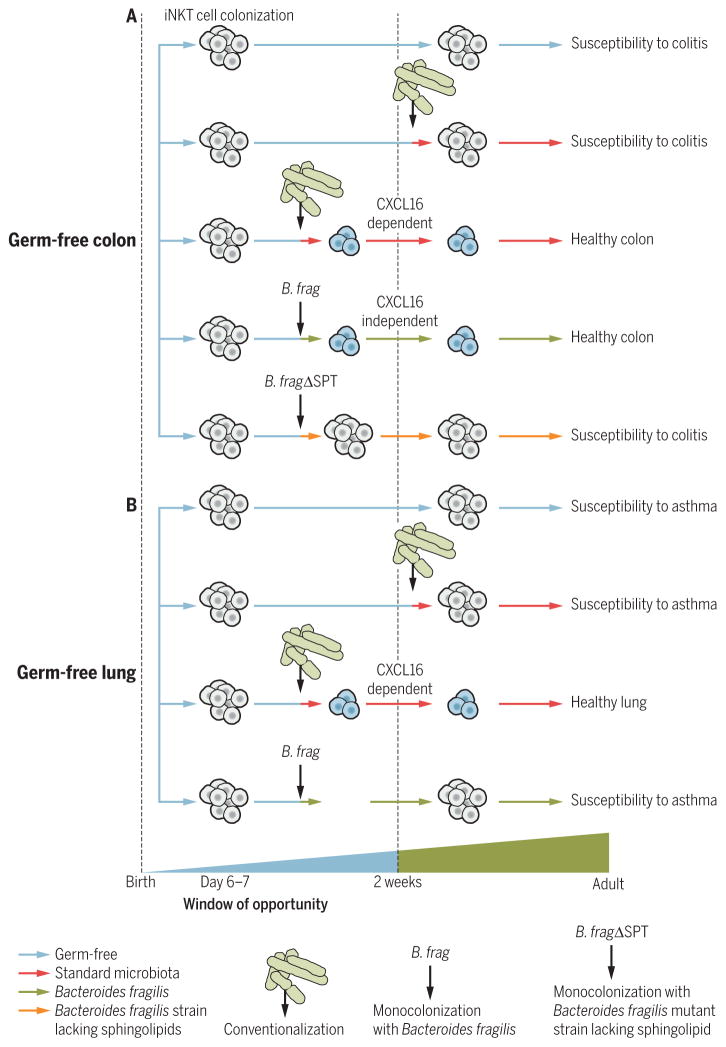Fig. 1. iNKT cell colonization is regulated by the microbiota during early life and influences susceptibility to colitis and asthma later in life.
(A) iNKT cells migrate from the thymus to the colon during the first weeks of life. Their abnormal accumulation in the colon of GF mice leads to later-life susceptibility to oxazolone-induced colitis. Conventionalization with a standard microbiota or monocolonization with B. fragilis (B. frag) but not B. fragilis deficient in sphingolipids (B. fragΔSPT) during the window of opportunity restores colonic iNKT cell numbers and abrogates the increased susceptibility to colitis. In contrast to conventionalization with a standard microbiota during the first 2 weeks of life that decrease iNKTcell number in a mechanism dependent on CXCL16, monocolonization with B. fragilis regulates colonic iNKT cell number in a CXCL16-independent manner that depends on inhibitory sphingolipids from B. fragilis that impede iNKT cell proliferation. (B) iNKT cell accumulation in lungs of GF mice lead to later-life susceptibility to asthma. Conventionalization with a standard microbiota but not monocolonization with B. fragilis during the window of opportunity restores colonic iNKT cell numbers in a CXCL16-dependent manner and abrogates the increased susceptibility to asthma.

